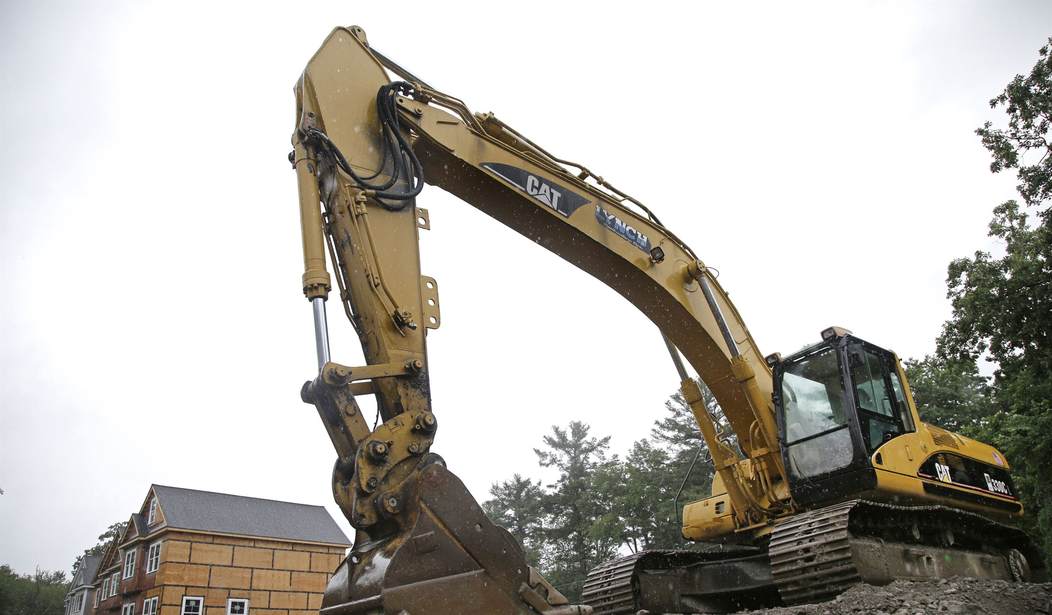A California landowner won his challenge to the constitutionality of a fee a California county charged him to obtain a building permit on Friday. In 2016, George Sheetz of Placerville, CA, attempted to build a home on a parcel of land he owned. When he applied for a building permit, he was gobsmacked to learn that in addition to typical fees, he had to pony up $24,000 for a "traffic impact mitigation fee." A unanimous Supreme Court agreed with Sheetz that the "mitigation" fees he had been assessed ran afoul of the Fifth Amendment's "Takings" clause and had to be determined on a case-by-case and directly related to the work necessary to offset the impact of a project.
The underlying issue is the practice in many jurisdictions of charging "impact fees" in addition to the usual permit fees before new construction is allowed to begin. In my county, a new home over 1,500 square feet costs you an extra $15,000. (Over a beer, I can tell you a funny story about how a county functionary lost his crap after failing to talk my wife into changing the height of the basement in a carefully designed 1498-square-foot house from 6' 6" (technically a crawlspace) to 7' (living space), and having her tell him the reason for our design specs.) The fees are arbitrary and more likely than not are never used to address any so-called "impact" of the new building. In Sheetz's case, the county essentially admitted that the $24,000 fee wasn't related to actual mitigation. However, that didn't matter because while the Supreme Court had ruled that administrators couldn't do this, El Dorado County's fees were created by legislation.
Justice Amy Coney Barrett, writing for the court, said that impact fees had to be tailored to address a problem and couldn't be attached to a certain property type.
The state courts declined Sheetz’s suggestion. They concluded that the Nollan/Dolan test only applies to fees imposed on an individual basis, rather than fees – like the traffic impact mitigation fee – authorized by legislation.
The Supreme Court on Friday disagreed. In her 11-page opinion for a unanimous court, Barrett explained that nothing in the text of the Constitution indicates that the takings clause does not apply to fees imposed by legislatures. The same is true, she continued, for the history of the takings clause. “In fact,” she wrote, “special deference for legislative takings would have made little sense historically, because legislation was the conventional way that governments exercised their eminent domain power.” Nor, she added, do the Supreme Court’s cases interpreting the takings clause distinguish in any way “between legislation and other official acts.”
Barrett emphasized that the court’s ruling did not resolve some of the other issues raised by Sheetz’s challenge regarding the validity of the fee – “including whether a permit condition imposed on a class of properties must be tailored with the same degree of specificity as a permit condition that targets a particular development.” The state appeals court did not weigh in on this or other unresolved questions, Barrett explained, because it “proceeded from the erroneous premise that legislative permit conditions are categorically exempt from the requirements of Nollan and Dolan.” “Whether the parties’ other arguments are preserved and how they bear on Sheetz’s legal challenge are,” Barrett concluded, “for the state courts to consider in the first instance.”
This decision doesn't spell the end of impact fees. It does require counties and cities to demonstrate that there is an impact, and that the impact fee is related to mitigating a problem rather than slapping a hefty fee onto all construction of a particular type.
While not the resounding and clear-cut victory most of us would have hoped for, it will make it much more difficult to assess impact fees for the construction of individual single-family homes.














Join the conversation as a VIP Member